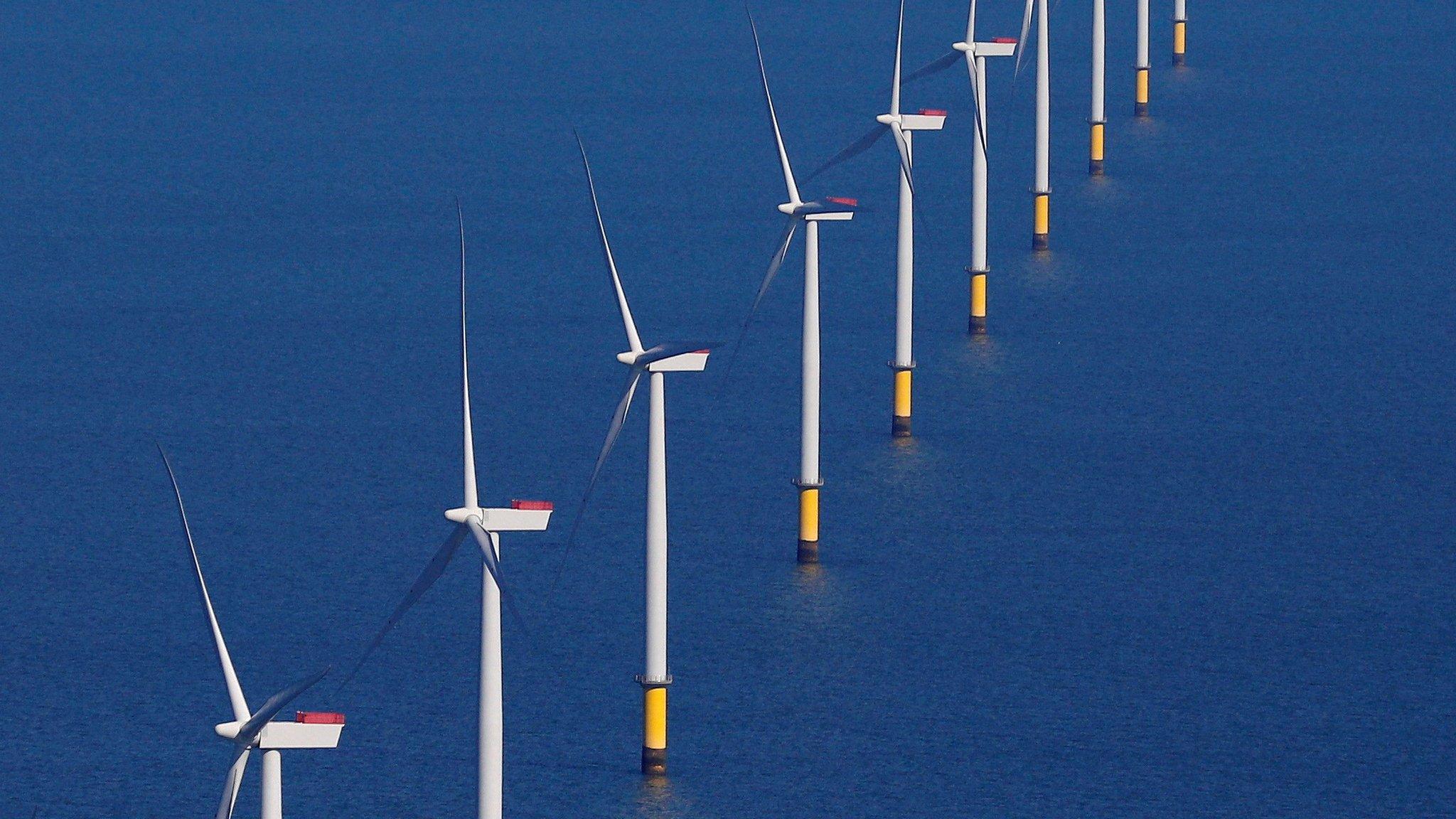Row over Guernsey's electricity supply strategy
- Published
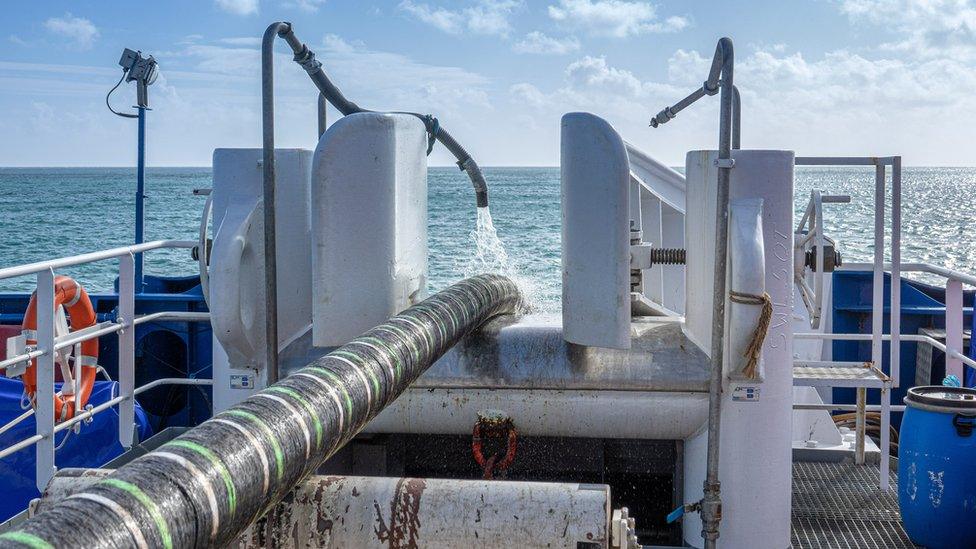
The current cable runs to France via Jersey and the committee has recommended a second direct to France link
A leading businessman has criticised Environment and Infrastructure's (E&I) new electricity strategy for Guernsey.
Jon Moulton said the strategy should come after a long-term deal on power supply has been signed with French energy suppliers.
The current deal for electricity supply with French energy supplier EDF is set to run out in 2027.
E&I President Lindsay de Sausmarez believes it is important the States is given a strategic direction now.
E&I wants the States to commit to looking at a new undersea cable, offshore wind turbines, more solar generation and improvements to the island's diesel generators.
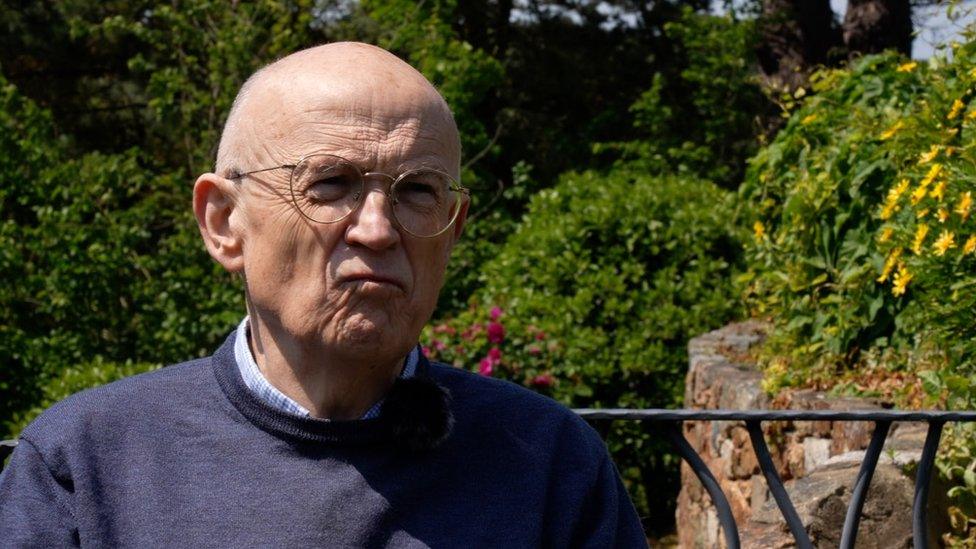
Jon Moulton said the States should wait for more information
Mr Moulton, from the centre-right think tank the Guernsey Policy and Economics Group (GPEG), said: "You cannot decide on a strategy until you've worked out what our French supplier wants to do."
Currently around 93% of Guernsey's electricity is sent through a cable via Jersey, from France.
Mrs de Sausmarez disagreed with Mr Moulton's approach and said E&I was not asking the States to approve a second undersea cable at this stage.
She said: "This is just the strategic direction that will give the various parties the mandate to do the much more detailed work required to inform that decision at a later date.
"It's also important to note that the lead-in time for a second undersea cable is in the region of eight to 10 years.
"It is simply not feasible to pin down the contractual details such as electricity price that far in advance, and nor would we want to, as the market is currently quite volatile but is projected to stabilise in the next couple of years."
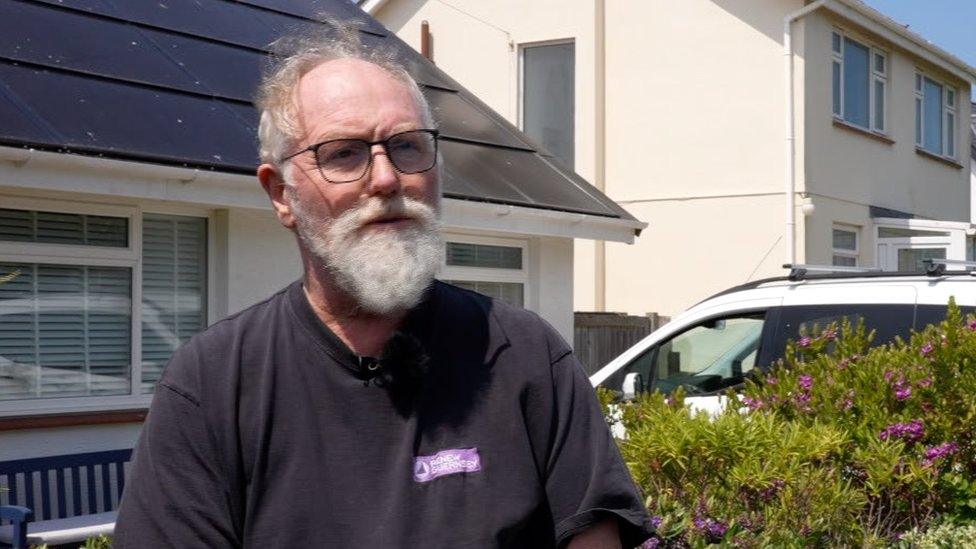
Paul Fletcher is concerned about the direction chosen by E&I
Paul Fletcher, from renewable energy company Renew Guernsey, is also concerned about the direction chosen by E&I.
He said the E&I proposals for a small windfarm off Guernsey would be very expensive, and in his opinion "not a good idea".
Environmentalist and Chamber of Commerce board member Rupert Dorey believes E&I's preferred plan is the best for Guernsey.
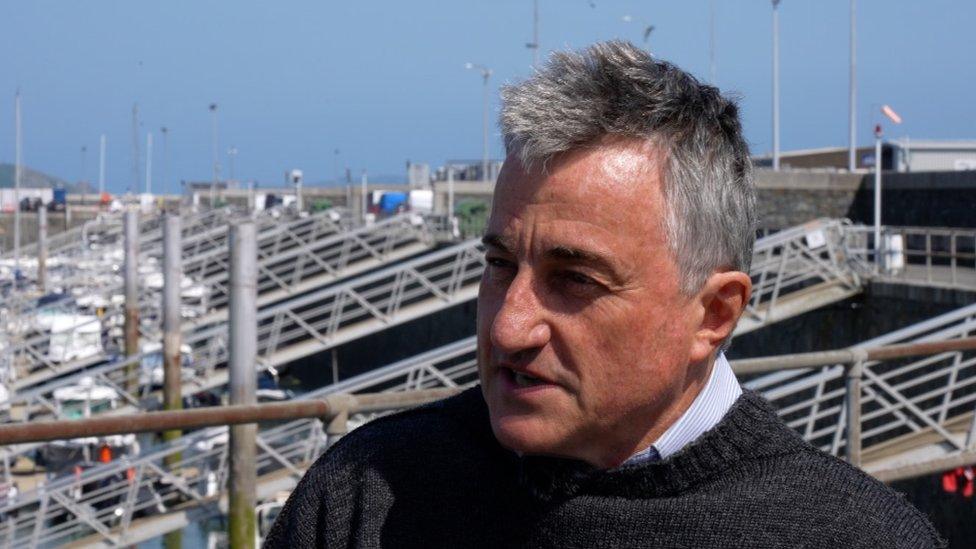
Rupert Dorey believes there will be very few objections to the latest plans
"I think there has been a lot of listening going on and conversations happening, and a lot of development of the actual policies such as that we have got to a state where there is going to be very few objectors to the current policy.
"Frankly if people do have objections, they probably won't be rational ones."
It also has the support of some of Guernsey's biggest power providers.
Guernsey Electricity has welcomed the strategy and said it was "satisfied that the pathway proposed for achieving net zero by 2050 provides options for renewable energy and a second interconnector."
The company's CEO Alan Bates said: "The proposed pathway is significantly cheaper, in terms of total expenditure and electricity system price to islanders, compared to carrying on as we are. It is also the least carbon intensive route, by some margin, compared to the other options presented."

Alex Herschel is head of sustainability at the Island Energy Group
The Island Energy Group has also signalled its support for the plan.
Alex Herschel the company's head of sustainability, said: "I think the main thing is that there is movement.
"I think everyone is in agreement that as an island we need to move forward with an energy policy and an electricity strategy which means we can build momentum and build towards net-zero before 2050."
Guernsey's electricity strategy is expected to be debated by politicians in July.

Follow BBC Guernsey on Twitter, external and Facebook, external. Send your story ideas to channel.islands@bbc.co.uk, external.
Related topics
- Published5 June 2023
